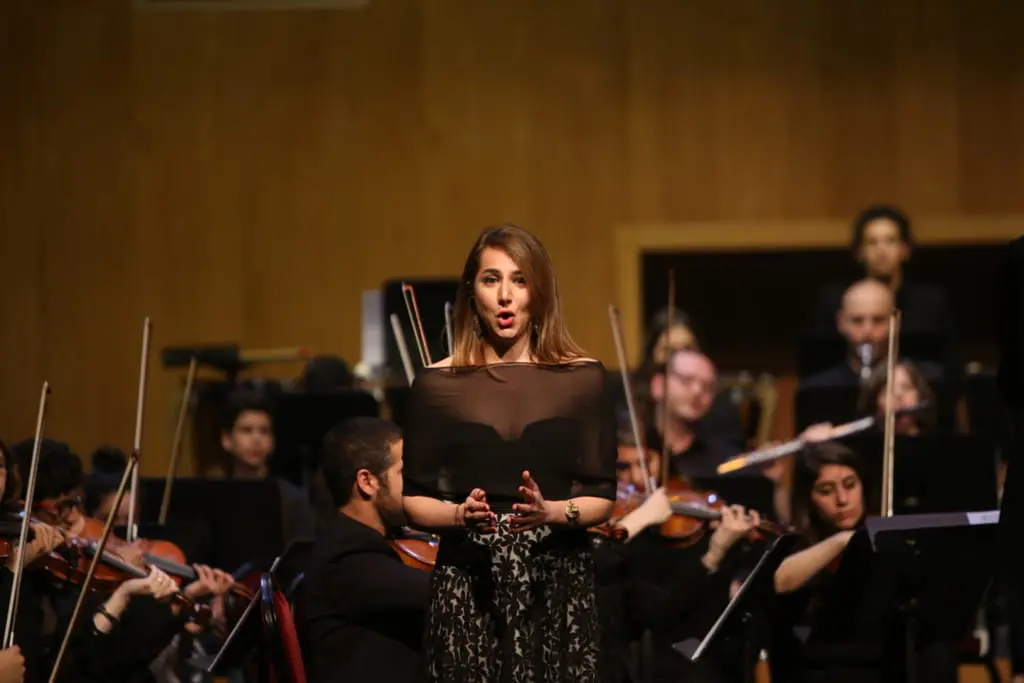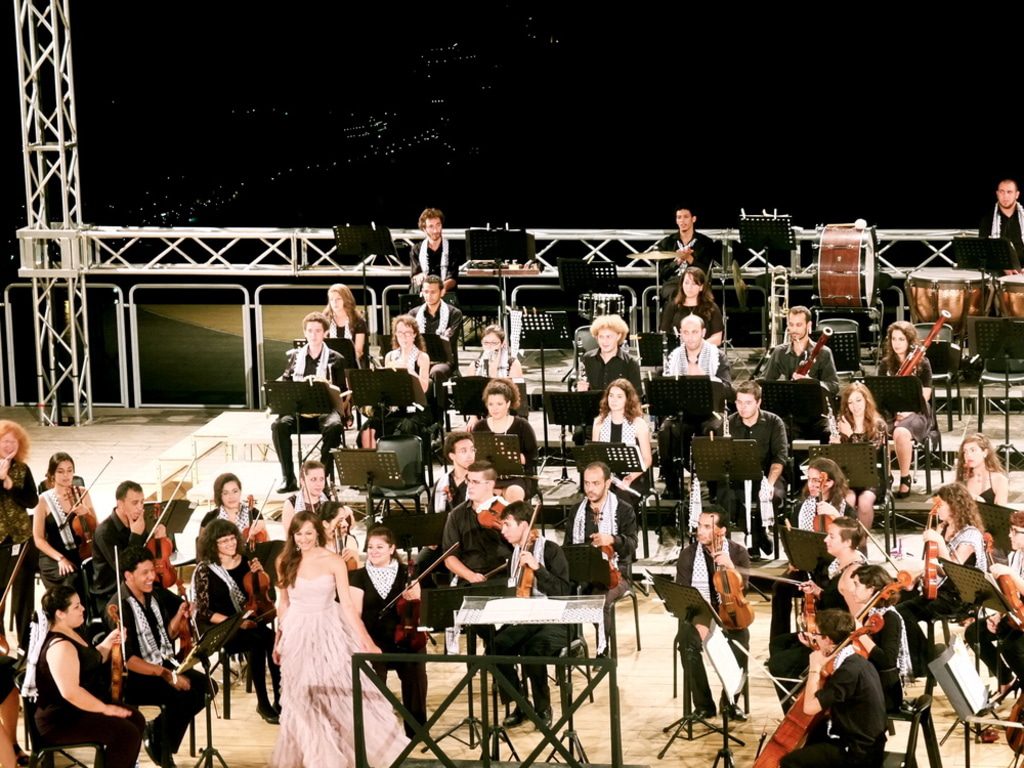
Known for her powerful vocals, soprano Dima Bawab is a rising star on the international opera stage. Yet it was almost by chance that she became a singer at all. Born in Jordan on 2 September 1981 to a Palestinian parents, Bawab says music chose her, rather than the other way around. Neither of her parents are professional musicians, although both are great music lovers. Her father, who co-founded the National Music Conservatory in Amman, did not have the chance to pursue a career in music himself, and so “forced” music on his children – Bawab and her brother – by sending them to piano lessons at an early age. However, it was at an audition for a school play that Bawab discovered her singing voice, and began focusing on this aspect of her talent.
Although she was a big fan of musicals, and as a teenager admired Andrea Bocelli, the Italian crossover tenor who took classical music to the top of the international pop charts, Bawab never saw herself as a opera singer. That was until the summer of 1999, when her father enrolled her in an opera course in Biarritz. Upon her return from the intensive course, she told her father she wanted to drop everything and pursue a career as an opera singer. By this point she was 17 and still had one more year of high school to go. Her father, who had always been her main supporter, declined, for the first time, her music-related request. He wanted her to graduate from high school before embarking on a journey of her own.
This is what happened, although Bawab says lucky encounters with the right people at the right time helped shape her career. For instance, while a student at the King Hussein National Conservatory in Amman, she was approached by a French woman who offered to coach her and encouraged her to continue her music studies in the French city of Toulouse.
She moved to Toulouse in 2000 and graduated four years later with the unanimous vote of the jury members with distinction, having also worked closely under the supervision of the world renowned Mady Mesplé. She was accepted to the prestigious Conservatoire National Supérieur de Danse et de Musique in Paris, and graduated from there in 2007, also with distinction. Since then, she has performed around the world in a variety of repertoires. She made her debut at the Opéra-Comique in Paris in 2010, playing the role of Yniold in Debussy’s Pelléas et Mélisande, conducted by Sir John Eliot Gardiner. She returned to that production in Paris in 2014, along with performances in Zagreb, Croatia and her debut at the BBC Proms in the United Kingdom. Also in 2014, she sang the role of Zémire in André Grétry’s Zémire et Azor in Liège, Belgium to great acclaim, followed by Le Feu/Le Rossignol in Ravel’s L’Enfant et les Sortileges in Montpellier, France.

She describes performing Mozart’s Le Nozze di Figaro in Nantes, France last spring as “amazing”, because the experience was designed to make the audience feel as if they were watching a film. To her, this is a great way of revolutionizing and modernizing opera, allowing people to relate more to the characters.
However, singing opera is not just a career for Bawab. As a Palestinian with a Jordanian passport who has lived in France for the past 16 years, she says she often always asks herself: Am I French? Am I Jordanian? Or am I Palestinian?
Although she feels a strong connection to Palestine, she and her family have no legal proof that they are Palestinians. Music has helped her connect with an identity that she was never given, she says. As a result, she has been extremely active on the Palestinian music scene since 2005, and has made it a point to perform in Palestine at least once a year, mainly during the summer. She tours Palestinian cities including Ramallah, Bethlehem and Nablus with the Palestine Choral Festival, where she also gets the chance to work with children and adults.
One of the difficulties she has encountered during these visits is Palestinians’ restricted movement. This means that she has to give the same concert in different cities, a blessing in disguise, she says, which allows her to meet more people and spread her message to a wider audience. Performing every summer in Palestine has become the highlight of her year. Moreover, her Palestinian fan base keeps growing, and she is frequently approached by people who tell her how proud they are of her and what she is doing. Once every year, she is given the right to be Palestinian.
However, the question of identity follows her everywhere. When she is asked in Europe where she comes from, her first answer is usually Jordan, although she acknowledges this is a form of self-protection in a world highly divided over the Israeli-Palestinian conflict. But those who know her better know that a major part of her identity is Palestinian, and she is extremely proud that this side of her comes alive every year when she performs in Palestine.
Bawab’s main challenge as an opera singer is finding the balance between a ‘normal’ life and life on tour. She enjoys travelling and meeting new people, and always tries to build a routine wherever she goes. “The kitchen is where I feel most at home, so whenever I travel I try to cook homemade meals as much as possible. Happy tummy equals successful singing!” she says.
As a resident of many countries and a visitor to many more, Bawab will always carry several flags, highlighting her international and fluid character. Yet one of these flags will always be Palestinian. She is a tireless advocate for peace, and hopes that through her voice and music, she will be able to shed a light on the part of the world she comes from.


